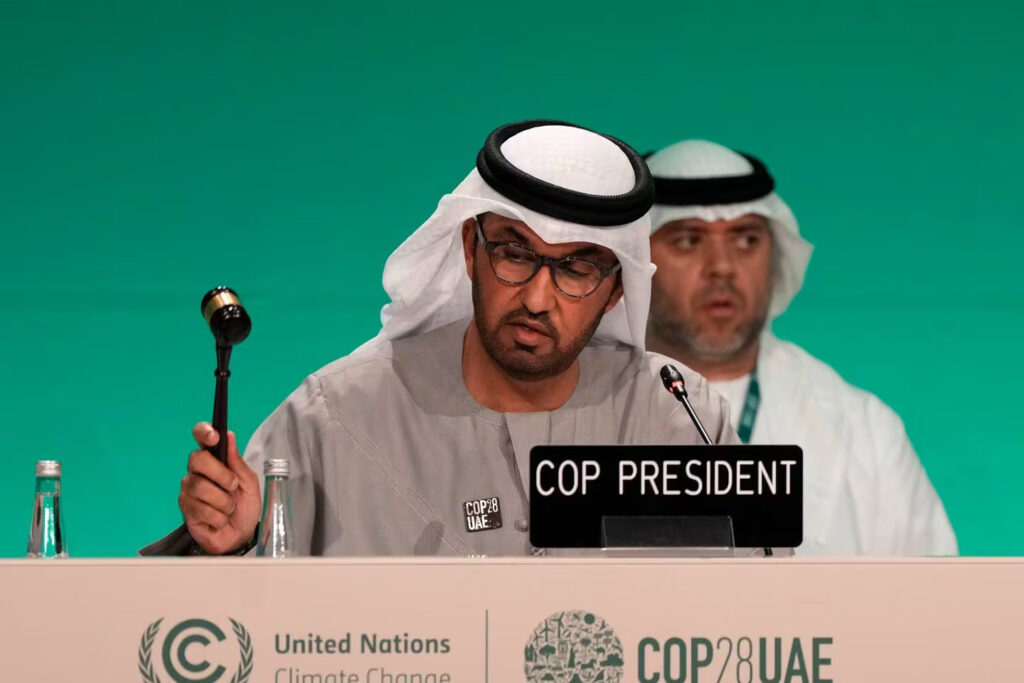Fossil fuel compromise leaves both wealthy and developing nations with a difficult task.
A Balanced Compromise
The UAE-brokered global climate deal stands as a sprawling compromise, offering various provisions catering to diverse interests in the quest for transitioning away from fossil fuels.
It emerged after extensive all-night negotiations, reflecting the collective efforts of rich nations, vulnerable island states, and activists striving for global action to combat climate change.
Historic Transitioning Away from Fossil Fuels
A historic milestone is marked as the agreement represents the world’s unanimous commitment to transitioning away from fossil fuels. However, concessions made to developing nations, coal users, and gas exporters have ensured the retention of significant footholds for the fossil fuel industry in the future.
Global Stocktake: A Call to Action
The global stocktake, a pivotal element agreed upon in Dubai, serves as a momentous call to action. Its implementation, however, rests on the shoulders of each of the 198 participating nations to translate this blueprint into tangible actions within their respective countries.
Turning Pledges into Reality
UN’s climate chief Simon Stiell emphasized the urgency to translate these pledges into real-world outcomes swiftly. Governments and businesses alike shoulder the responsibility to expedite the conversion of commitments into actionable steps, without delay.
Key Implications for Key Players
For developing countries, the deal advocates for their participation in the journey towards achieving net-zero emissions. The call for transitioning away from fossil fuels applies universally, although provisions exist for nations relying on fossil fuels for revenue and economic development, acknowledging their need for a gradual shift.










